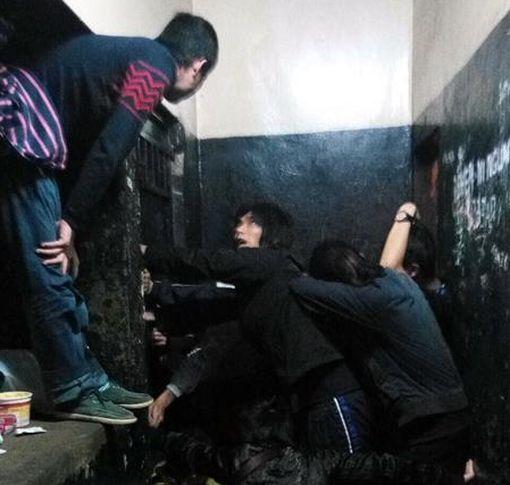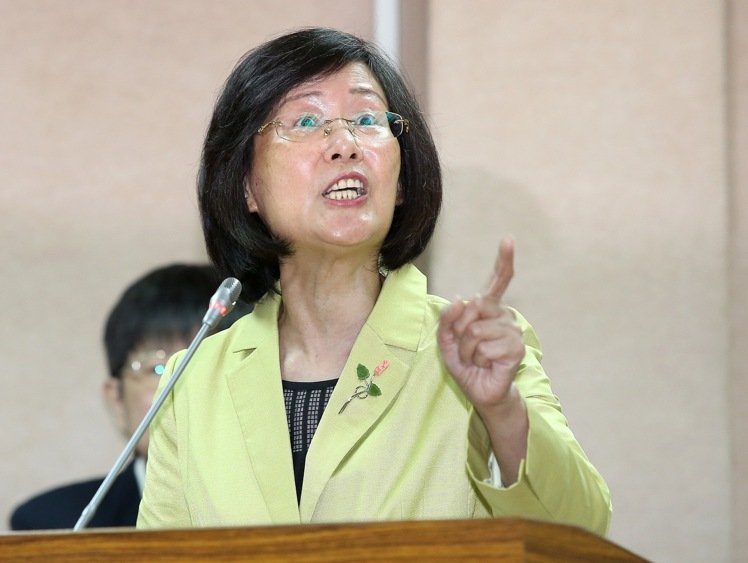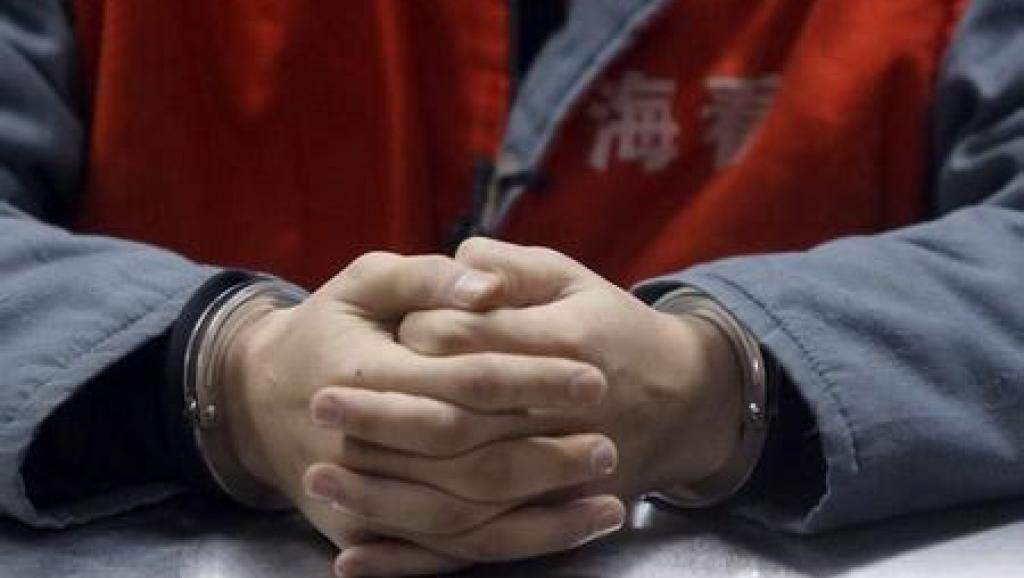by Brian Hioe
語言:
English
Photo Credit: Xinhua
MYSTERIES CONTINUE to abound regarding the deportation of 45 Taiwanese from Kenya to China, with the overall circumstances of the deportation remaining unclear. This is no longer a one-off incident, with attempts by China to deport 52 suspects from Malaysia to China before this was refused by Malaysia. Is China now seeking to apply Chinese law to Taiwanese nationals abroad? The Malaysian government has confirmed that the Chinese government directly interceded and attempted to apply pressure to deport the Taiwanese suspects to China.
Like Kenya, Malaysia has strong trading ties with China. Yet relations with China are also marked by tensions of overlapping territorial claims over South China Sea Islands. A 2014 poll by the Pew Research Center confirmed that 66% of Malaysians thought conflict with China was a possibility as a result of territorial tensions between the two countries. This may be one reason as to the differing response of Malaysia and Kenya. But there remain questions to the precedents of such deportations in international law.
Namely, many have questioned the legality of the deportation of Taiwanese to China, not only according to Kenyan law, but according to international law. What the 45 deported Taiwanese are accused of is telephone fraud and cybercrime. There was a similar case in 2013 in which backlash followed against the Philippines after the Philippines deported Taiwanese to China also for telephone fraud. A similar case in Indonesia also occurred earlier this month, but it led to the deportation of Taiwanese criminals back to Taiwan instead of China. This adds to questions of precedent for this kind of deportation.
Whether or not the deported Taiwanese are culpable has been muddled by inconsistent reports on what occurred to the Taiwanese before their deportation. There have been numerous Taiwanese and international news reports claiming that at least some of the deported Taiwanese were acquitted before their deportation and were detained after going to retrieve their passports; similar reports stated that the deported Taiwanese did not receive a trial in Kenya, in order that the trial process would take place in China. When grilled on the matter by the New Power Party’s Huang Kuo-Chang, himself a former professor of law at Academica Sinica, Taiwanese Ministry of Justice officials were unable to account for whether the deportation was legal or illegal on the basis of Kenyan law. The Ministry of Justice claimed that some, but not all charges against the arrested Taiwanese were cleared, likewise suspects may have been cleared by Kenyan law, but not Chinese law; nevertheless, lawyers representing the Taiwanese suspects in Kenya have continued to maintain that the deportation was illegal on the basis of that they were acquitted beforehand.
Interviews conducted by Hong Kong-based Initium Media with Chinese caught up in the series of events in Kenya in an investigative report suggested that some of the arrested may not have been fully aware of what they were doing and may have been tricked into the scamming process, though this was also claimed in past incidents in the Philippines and Indonesia by scammers. Phone scams and cybercrime by Taiwanese and Chinese in Southeast Asian countries, as well as Africa and South America, are certainly a pattern, particularly by organized crime groups. It would not be altogether surprising if the arrested were involved in such activity, but it seems premature as to assume their total guilt, hence that this means complete justification for the Kenyan and Chinese government’s actions.
Although many question the strong influence of China on Kenya as a factor in its actions, Kenyan government justified deporting the 45 Taiwanese to Kenya on the basis of that they had entered Kenya through China. However, some in Kenya stated their skepticism of the legality of police actions, as cited in the interviews conducted by the same article in Initium. In particular, the use of tear gas and threats using automatic weapons has been cited as attempts by the Kenyan police to show their ability to maintain public safety in the wake of recent terrorist attacks in Kenya.
 Taiwanese suspects attempting to resist being deported to China. Photo credit: CNA
Taiwanese suspects attempting to resist being deported to China. Photo credit: CNA
Furthermore, the account of the Kenyan government of how many Taiwanese were deported differs from the number of individuals Taiwan claims, leading to some fundamental questions about what exactly has occurred to date. Kenyan newspapers seem to have originally reported on the incident as the deportation of “Chinese”, with no reference to any Taiwanese being deported and including the number of Taiwanese within the number of Chinese. This has led to questions about what information was initially released to Kenyan media by the Kenyan government and whether this suggests that the Taiwanese were just treated as “Chinese” by the Kenyan government. But, frighteningly enough for our ability to gather information about the basic facts of what remains a muddled situation, the Taiwanese, Chinese, and Kenyan governments actually all differ in their claims about the number of Taiwanese (and Chinese) that were deported.
Deportation to a third country is not forbidden by international law, however, what complicates matters is inconsistent accounts from just within the Taiwanese Ministry of Foreign Affairs (MOFA). MOFA first maintained the legality of the deportations and then later reversed their stance, which is often perceived to have happened after popular pressure.
 Ministry of Justice Luo Ying-shay in particular has been singled out for blame regarding the handling of this incident. Photo credit: UDN
Ministry of Justice Luo Ying-shay in particular has been singled out for blame regarding the handling of this incident. Photo credit: UDN
However, the account of MOFA also seems not to square entirely with the account of Department of West Asian and African Affairs director-general Antonio Chen (陳俊賢). Antonio Chen claimed that there was a court injunction preventing the Taiwanese suspects from being removed by force, which Kenyan police ignored. There has been little reportage on what happened to this injunction subsequently and nothing has been heard from Chen subsequently.
Nevertheless, even if is true that deportation to a third country is not forbidden by international law on the basis of the nationality of the victims, it remains to be seen if in this case it was because of One China Policy that the suspects were deported to China. While it is agreed on by law experts consulted in news reports that deportation to a third country is not forbidden, rather questionably, law experts consulted in news reports have sometimes gone further in citing One China Policy as part of the legal justification for the deportation in regards to Kenya considering Taiwan a part of China. Against the claim that sovereignty is not the issue here, if it is unambiguously true that deportation to a third country is not forbidden according to international law, if One China policy is part of the legal justification for the deportation in this case, then issues of sovereignty may still very much be at stake here. One must not conflate the two matters. If it is that Taiwan has no extradition treaty with Kenya was a factor in the decision to make a deportation to China, and Taiwan has no extradition treaty with Kenya because it is not acknowledged as a nation by Kenya, this is still a matter of sovereignty.
Chinese government officials have repeatedly praised the actions of the Kenyan government specifically on the basis of their maintaining One China policy. China state-run media has cited that the actions of the Taiwanese suspects led to deaths and suicide, hence their arrest is an act of justice. Along such lines, Chinese state-run media has also stressed the need to adhere to the 1992 Consensus in this case for the realization of justice, which of course is in many cases simply a cipher for the “One China” principle. Unsurprisingly, some Chinese nationalist netizens have followed suit in applauding the actions of the Kenyan government. The veracity of the claims of state-run media remain to be seen, however.
Further stoking of fears that China is now seeking to apply Chinese law to Taiwanese nationals, following the precedent of Hong Kong’s kidnapped booksellers, confessions of guilt from the arrested Taiwanese suspects were published in Chinese state-run Xinhua News. Televised confessions were later broadcast on state-run CCTV, all too reminiscent of the televised confessions of the arrested booksellers in Hong Kong. If some have raised the possibility that Taiwanese criminals would get off without punishment had they been deported to Taiwan, the flipside of this is that there are large questions about how fair a trial to determine guilt or innocence they would receive in China, when state-run media apparently steps in to extract confessions of guilt from suspects to parade on television in the middle of the trial process.
 One of the suspects as he appeared during a televised confession on CCTV. Photo credit: CCTV
One of the suspects as he appeared during a televised confession on CCTV. Photo credit: CCTV
At present, within Taiwan, we are seeing the fallout against Ministry of Justice officials who are seen as having waffled on the matter and severely mishandled it. The Legislative Yuan later released a statement condemning the deportations, with all major party signing on. But what if this is a new precedent? Certainly, if all Taiwanese abroad are to be treated as Chinese citizens under Chinese law, this could be a nightmarish hypothetical scenario. Going back to the kidnapping of dissident booksellers in Hong Kong, for example, a dystopian hypothetical which has been raised would be that all Taiwanese abroad harboring pro-independence sentiments could be arrested under Beijing’s anti-secession laws on charges of sedition. However unlikely this would be to happen, in theory, this would hold water if Taiwanese abroad are treated as Chinese citizens under Chinese law by other countries.
Given the the timing of recent events close to incoming DPP president Tsai Ing-Wen’s inauguration, events in Kenya and Malaysia have been perceived as a warning against the incoming Tsai administration. Regardless of whether they are done so with such an aim, these events will probably be perceived as setting a precedent and will undoubtedly have major impact on her administration’s early foreign policy. We will see as to China’s actions going forward then, as well as responses from Taiwan.


 Taiwanese suspects attempting to resist being deported to China. Photo credit: CNA
Taiwanese suspects attempting to resist being deported to China. Photo credit: CNA Ministry of Justice Luo Ying-shay in particular has been singled out for blame regarding the handling of this incident. Photo credit: UDN
Ministry of Justice Luo Ying-shay in particular has been singled out for blame regarding the handling of this incident. Photo credit: UDN One of the suspects as he appeared during a televised confession on CCTV. Photo credit: CCTV
One of the suspects as he appeared during a televised confession on CCTV. Photo credit: CCTV